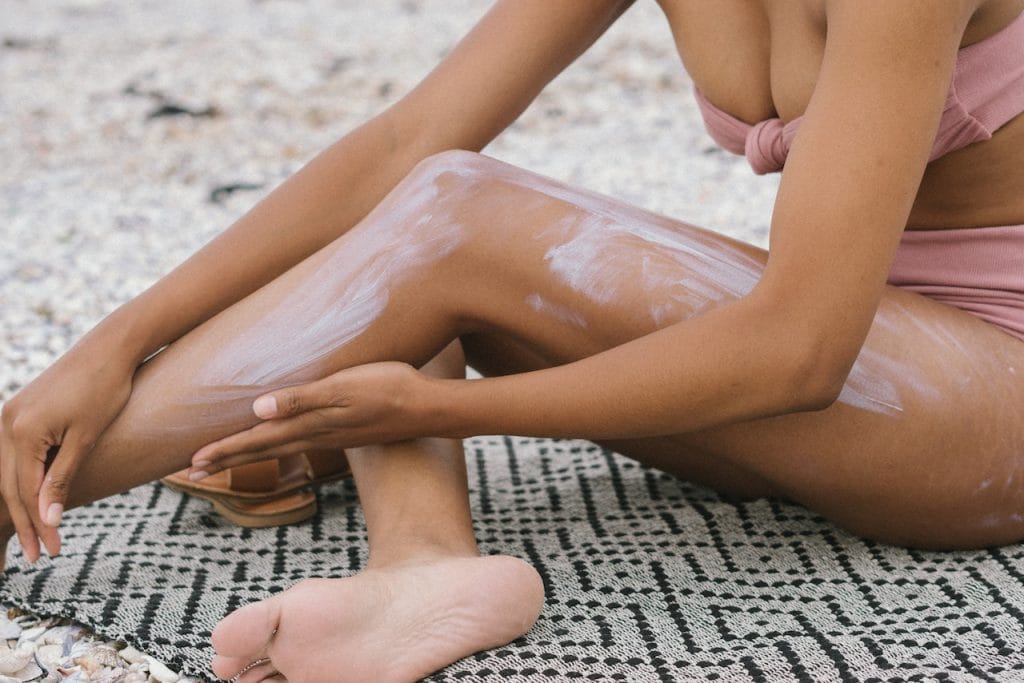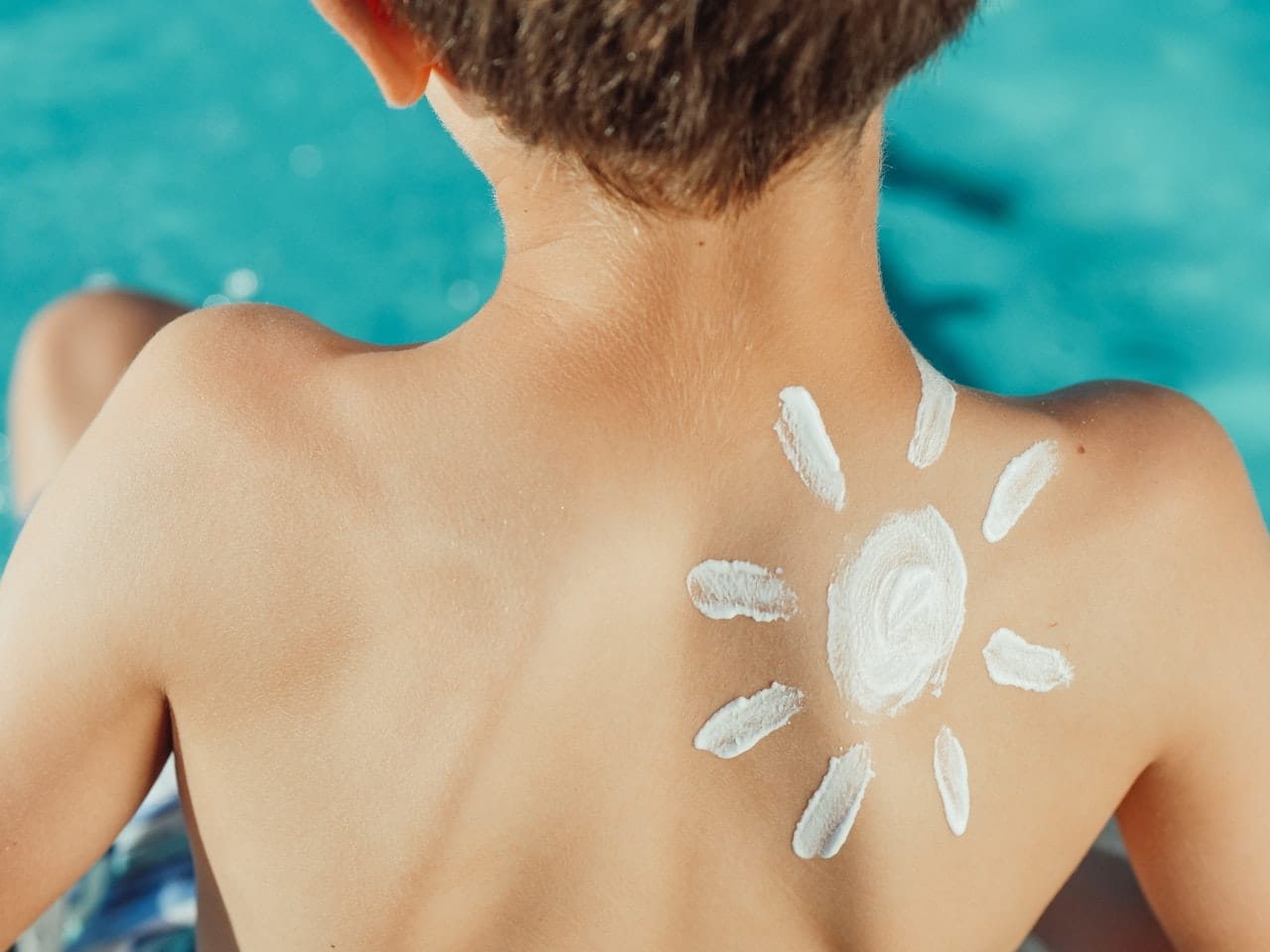Sunscreens are the only skincare products that every person needs, experts say. However, there are still many misconceptions surrounding the use of such funds. We decided to check the most popular of them.
High SPF sunscreens provide reliable skin protection from ultraviolet rays
On many travel sites writethat to protect from the sun you need to use products with SPF (sun protection factor, that is, sun protection factor). This information can be found at portals about cosmetics, news resources and entertainment websites. Users on forums are discussing, how effective are products with SPF in protecting against burns and the harmful effects of the sun.
During the process of tanning on the beach, a person's skin is exposed to ultraviolet radiation. radiation. Human health can be affected by long-wave (UVA) and medium-wave (UVB) rays. There is also short-wave ultraviolet type C, but it is completely blocked by the ozone layer and does not reach the Earth. UVA has a greater effect on premature skin aging and tanning, UVB has a greater effect on skin redness and sunburn. But both of them are harmful to health: they increase the risk of skin cancer, cause eye diseases, etc. “Tested” already wrote about why sunbathing is not healthy.
SPF is only responsible for protecting against type B rays, but does not protect against type A rays (that is, it helps prevent burns, but does not prevent tanning). At the same time, UVB rays make up only 5% of ultraviolet radiation reaching the Earth's surface, the rest is UVA. To make surethat the product also protects against type A rays, you need to look for the inscription “broad spectrum”, an abbreviation, on the label PPD or a note that the product is also effective against UVA radiation. Some Asian sunscreen manufacturers mark its products designed to protect against UVA, with the abbreviation PA+ (and the more pluses in this designation, the higher the degree of protection).
In addition, people often use sunscreens incorrectly. So that the product can provide maximum protection, it should be applied to the skin 15 minutes before leaving the house. An adult should use about 30 g of sunscreen for the entire body. You need to renew it every two hours of exposure to the sun and every time after you have swam or sweated.
So products with a high SPF do protect the skin from the sun if used correctly, but not from all types of sun radiation. Therefore, when choosing a sunscreen, you need to pay attention to its ability to protect against type A rays.
Half-truth

The higher the SPF level, the more efficient means protects against ultraviolet radiation
Many cosmetic stamps offer funds with protection factors SPF 80 or even SPF 100, and some claim, that if you apply their product with a lower protection factor in several layers, you will be able to achieve the same high value. In articles on the websites of online cosmetics stores, these are the products advise choose those who have very fair skin.
SPF - This is an indicator of the effectiveness of the sunscreen. Its value is the proportion of burn-causing UVB radiation that reaches the skin despite the application of sunscreen. For example, SPF 20 means that 1/20 of the radiation that would damage unprotected skin will reach it even after applying the product. As the SPF value increases, the protection against sunburn increases. However, it is important to understand that we are not talking about the time spent in the sun, since solar activity is different at different times of the day - and this must be taken into account.
A higher SPF value actually protects more effectively from the sun, but only if we are talking about products with a protection factor of up to SPF 50. Specialists from the public organization Environmental Working Group directly not recommended use products with an SPF above 50. Firstly, experts say, they create a false sense of security, which is why people spend much more time in the sun. Secondly, they contain high concentrations of chemicals that can potentially be harmful to health. And thirdly, the difference in the degree of protection between products with SPF 50 and SPF 100 is actually not that great. Thus, the former protect against 98% of UVB radiation, and the latter – from 99%. However, none of these products still protect against UVA radiation unless labeled accordingly on the packaging. We agree So do the experts from the Skin Cancer Foundation.
Therefore, for tanning on the beach or long walks under the bright sun, it is really worth choosing products with a high protection factor, but this is only true for products with a protection factor up to SPF 50 inclusive. Higher numbers are more of a marketing ploy.
Half-truth

No need for sunscreen in cloudy weather
Internet users they telllike them burned in cloudy weather, thinkingwhat to protect from the sun no need. On question and answer service sites people are interested, is it possible to tan on a cloudy day.
Up to 80% ultraviolet passes through the clouds, so you can get sunburned (or get other health problems caused by solar radiation) even in less than clear weather. Experts from the American Dermatological Association recommend Use sunscreen even when it's cloudy.
To understand whether you need to apply a special cream to your skin, you can check UV index. This indicator is displayed in many standard weather forecast applications on popular smartphones; you can also view it on specialized websites. WHO experts say that it is worth applying protection before going outside if the UV index is 3 or higher.

Not true

If your skin is dark or already tanned, sun protection is not needed
Internet users share his opinion that people with dark skin do not need sunscreen in the comments to articles on this topic. Some they tell about how, as a child, we walked all day in the sun without any protection and, having a naturally dark skin tone, did not get sunburned. On the forums for a similar reason advise use at the end of the holiday funds with a low protection factor (for example, SPF 6).
People with darker skin are indeed less likely to get sunburned, but this does not in any way protect them from all the other dangers that ultraviolet radiation brings. Even the darkest skin tone provides protection similar to a cream with SPF 13 protection, which in many cases is not enough. Experts advise use products with SPF 30 even for people with naturally dark skin tones.
Specialists from the Skin Cancer Foundation remindthat even dark-skinned people are susceptible to this disease, and solar radiation is one of the risk factors. In addition, intense exposure to sunlight provokes premature aging - and people with dark skin are just as susceptible to this as “snow whites”.
In general, experts are quite unanimous on this issue and advise even dark-skinned people to use sunscreen, since natural melanin is not enough. And of course, this is even more true for simply dark-skinned or slightly tanned people.
Mostly not true

Sunscreens are hazardous to health
Many media outlets have written about the possible harm of sunscreens (“News", "Science and life", BBC, "+1", etc.). Information that sunscreens can do more harm than good is on the websites pharmacies And shops cosmetics. On forums dedicated to children, parents are discussingWhat is more harmful for a child: the sun or sunscreen.
In 2019, the US Food and Drug Administration (FDA) published results research on four popular sunscreens in America. Experts have found that some components (avobenzone, oxybenzone, octocrylene and ecamsul) of such cosmetics are actually absorbed and enter the human bloodstream, and then can negatively affect his health. However, only 24 volunteers participated in the study, so FDA experts emphasize that their results should not be a reason to refuse to use sunscreen cosmetics.
At the same time, the FDA released press release, which stated that only two of the 16 most common active ingredients in sunscreens can be considered guaranteed to be safe: zinc oxide and titanium dioxide. At the same time, the agency does not claim that all other substances are dangerous, but their effect on the body needs to be studied more closely.
Environmental Working Group declaresthat some of the components used in sunscreens can be dangerous - they can cause hormonal imbalances, allergic reactions and other problems. And the same substances considered safe by the FDA can be carcinogenic if inhaled, and this is more than possible during the application of products, especially those produced in spray format.
Thus, there is no reason to say that sunscreens are downright harmful. However, some ingredients may indeed be potentially dangerous, but more research is needed to say for sure. Moreover, as already wrote “Tested”, there is some reason to believe that individual components of sunscreens can harm not humans, but nature—destroying coral reefs.
This is not accurate
Cover photo: Kindel Media, pexels.com
Read on the topic:
- Is it true that exposure to sunlight is good for your health?
- Is it true that sunscreens are destroying coral reefs?
- Is it true that ultraviolet manicure lamps increase the risk of skin cancer?
If you find a spelling or grammatical error, please let us know by highlighting the error text and clicking Ctrl+Enter.






